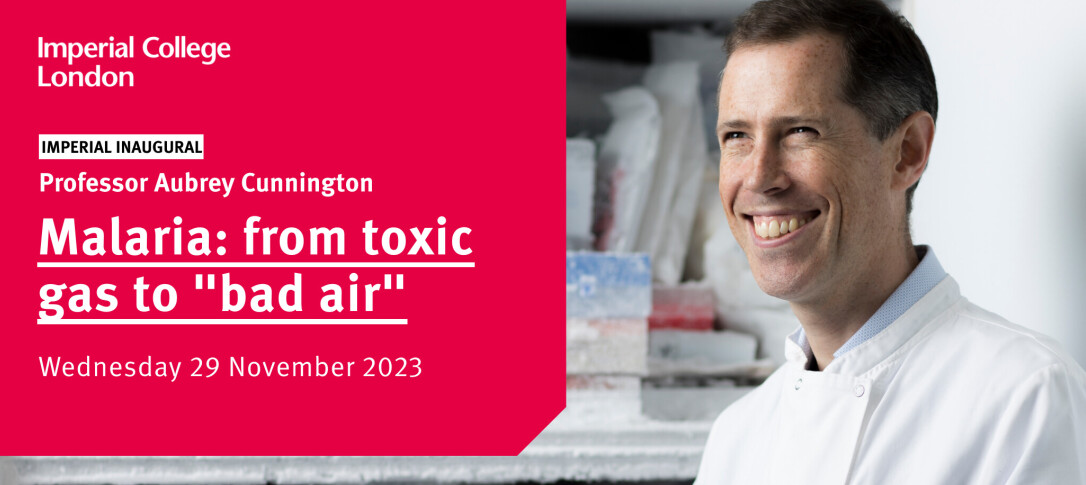
Join Professor Aubrey Cunnington, online or in person, for his Imperial Inaugural.
We have limited in-person spaces available so please ensure you register in advance.
Feel free to join us online.
From toxic gas to “bad air”: a quest for new diagnostics and treatments for malaria
Abstract:
Malaria, from the Italian for “bad air”, is one of the deadliest infectious diseases worldwide. The illness occurs when the mosquito-transmitted parasites replicate inside human red blood cells. The symptoms of malaria are indistinguishable from many other infectious diseases, and so new diagnostic tests are needed. Even if effective antimalarial drugs are administered to kill the parasites, severely ill patients may still die or face long-term consequences. Therefore, there is a need to find new treatments to reduce the damage that malaria causes to the body and to hasten recovery.
A central mechanism of the disease is haemolysis, where the contents of infected red blood cells are released into the bloodstream. The resulting free haemoglobin and heme can cause organ damage, whilst the body’s attempts to break them down can end up making people with malaria more susceptible to co-infection with bacteria. Haemolysis may be an important diagnostic and therapeutic target.
Aubrey Cunnington is Professor of Paediatric Infectious Disease in the Department of Infectious Disease at Imperial College. His interest in malaria research started on his medical student elective in Kenya, where he tested a carbon monoxide breath analyser for detection of malaria-related haemolysis. In his inaugural lecture he will describe how this led him to study the role of haemolysis in malaria pathogenesis and susceptibility to bacterial co-infections, and then back to developing new diagnostics to distinguish between malaria and other infectious diseases.
Biography:
Aubrey Cunnington is a clinical academic in Paediatric Infectious Disease. He is interested in understanding the interactions between the pathogens that cause infections and the way the body responds to these pathogens, to identify new treatments and diagnostics for severe infections like malaria. He works with collaborators across Imperial College and around the world, to answer these questions. Aubrey is co-lead of the NIHR Global Health Research Group on Digital Diagnostics for Africa, a principal investigator in the European DIAMONDS consortium developing personalised molecular signature diagnostics, and until recently he was co-lead of the Imperial College Network of Excellence in Malaria. He is currently Head of Section of Paediatric Infectious Disease at Imperial College, and Chair of the Committee for Scientific Affairs and Awards of the European Society for Paediatric Infectious Disease.


